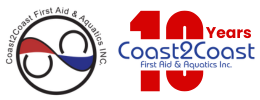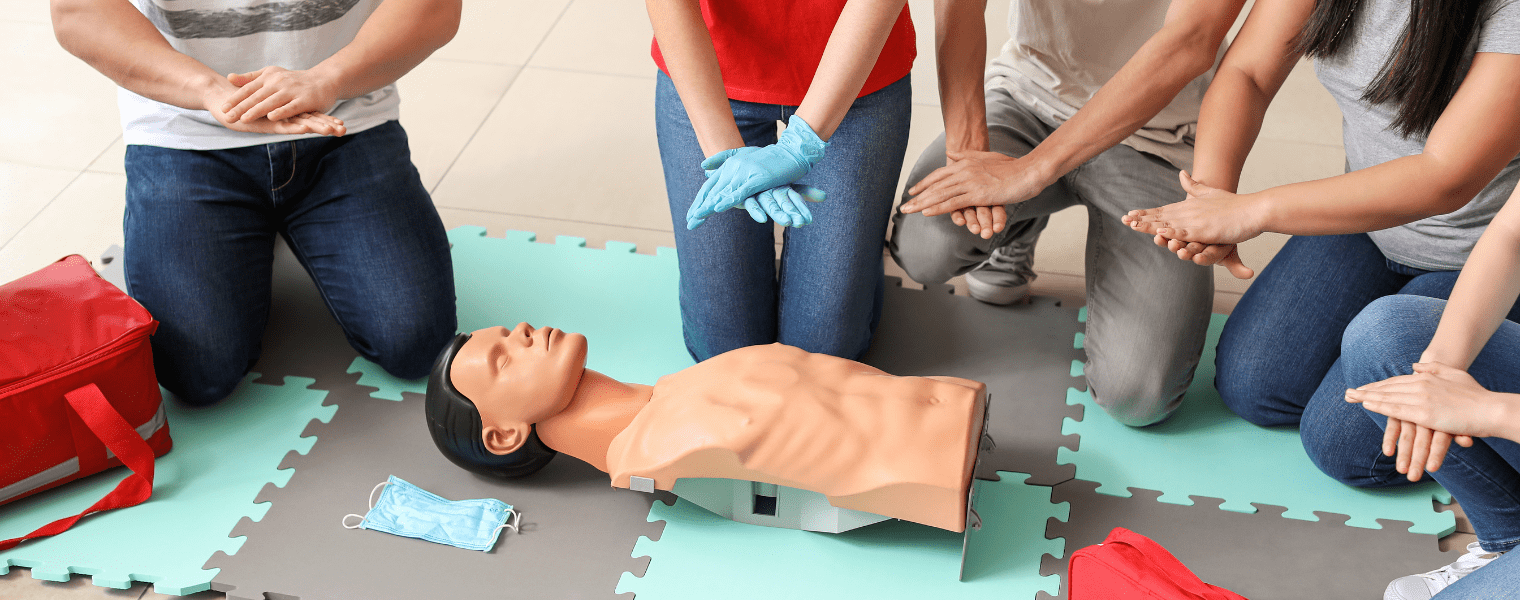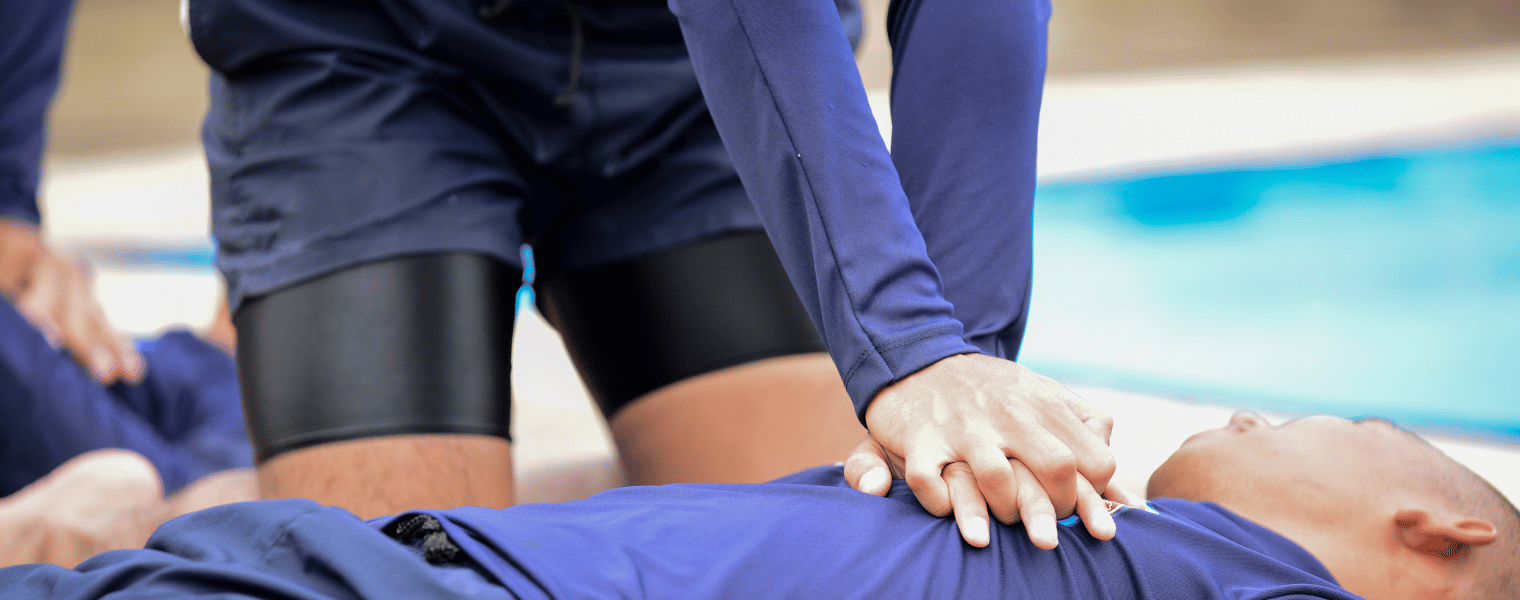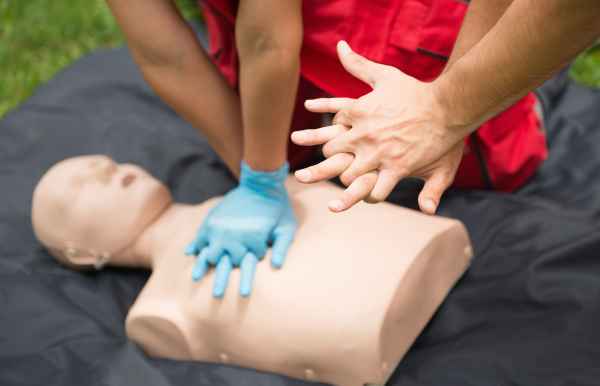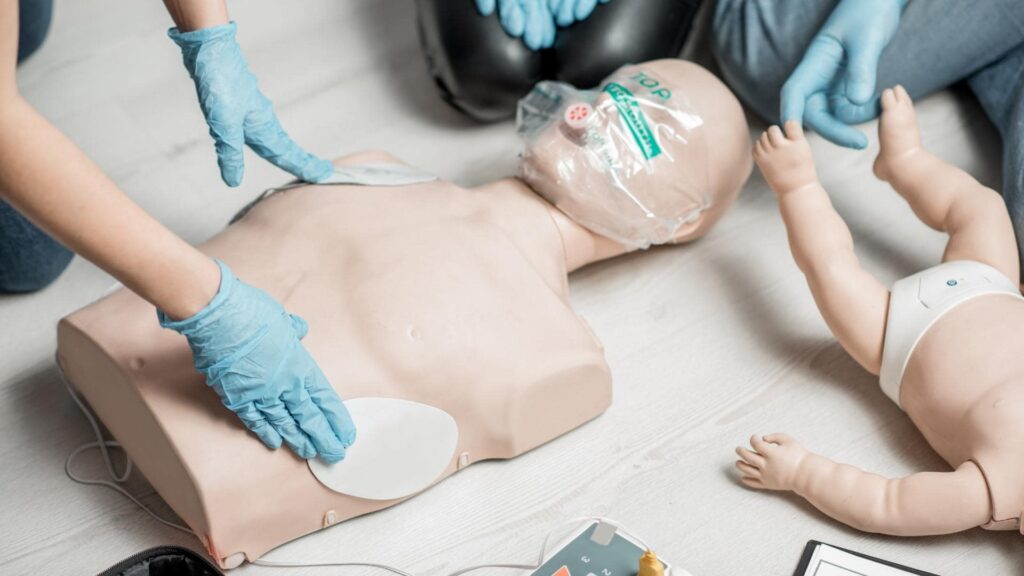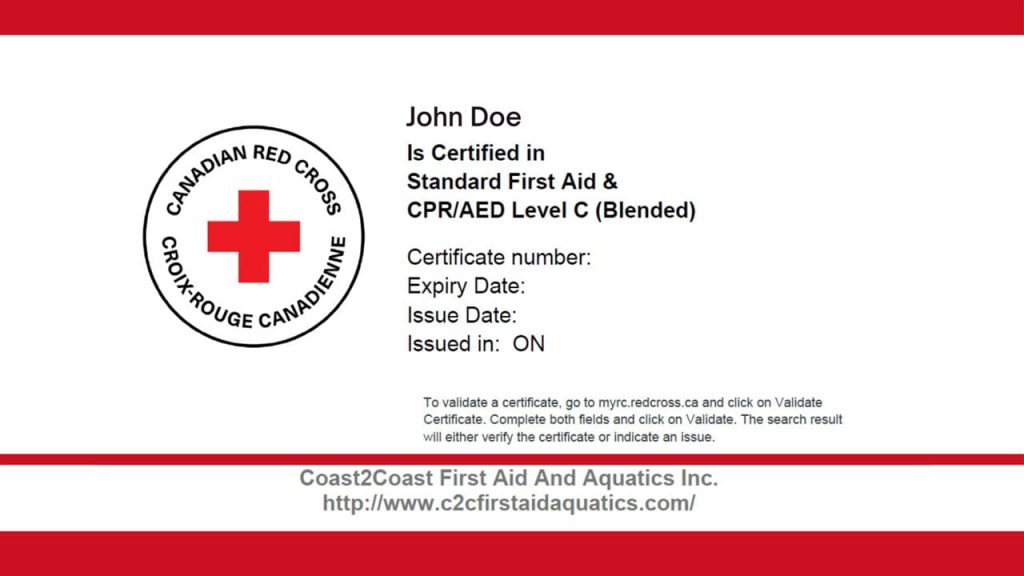Paramedics are specialized healthcare professionals trained to respond to emergency calls and provide medical help in emergency care to people outside of a hospital. They form part of Emergency Response Services (ERS), working primarily in ambulances.
Other tasks carried out by paramedics include providing medical care outside the parameters of an emergency call, including:
- Supervising patient transfers between medical facilities
- Working in community settings, for private companies on construction sites, or at sporting events
- Paramedics can also play an important role as educators, administration, or management officials
What is EMR Training?
Emergency Medical Responder (EMR) training is the maximum First Aid & CPR/AED training level. During the eight-day course, students get intensive training from Canadian Red Cross Instructors, ensuring they have no gaps in their theoretical or practical first aid skills; then, they will sit for an EMR exam to assess the knowledge gained. In addition, the participants learn how to assess and save lives as they practice their various life-saving skills in several recreated scenarios.
As an EMR, your training and skills surpass those of a First Aid professional. You will learn to provide essential life support treatments: oxygen and medication management, bleeding control, wound care, splinting, pain relief, CPR, etc. However, one of the most critical EMR skills is learning to make the correct assessments of sick or injured patients and to follow these with informed decisions that determine the best care and transportation to a hospital.
The dynamic learning techniques used during the training include video, skills demonstrations, practice sessions, media presentations, and discussions – all based on real-life situations you may face during your work.
Are you interested in taking an EMR course?
Complete the Professional Responder course with us to expand your career prospects in several fields. Call our toll-free number to know more.
Difference between First Responders & Emergency Medical Responders
First Responders take a 40-hour course where they learn comprehensive life-saving skills like CPR, bleeding control, and care for several acute and chronic conditions. In addition, the course trains professionals in several services to carry out First Aid until Emergency Medical Responders arrive on the scene. Their training includes crisis intervention, lifting and extracting patients, and handling multiple-casualty incidents.
Professions requiring First Responder training include police officers, rescue teams, fire service personnel, lifeguards, ski patrols, sports-medicine professionals, and workplace response teams.
EMR training differs because participants can work as paramedics. Their training requires 80 hours and includes transportation and pharmacology.

What Paramedics Do?
Ever wondered what it’s like to be a paramedic? Let’s peel back the curtain on this rollercoaster of sirens, split-second decisions, and the occasional battle with tangled stethoscopes. In the following video we explore the highs, the heart-pounding moments, and yes, even the comical mishaps that come with the territory. Get ready for a glimpse into a day in the life that’s both adrenaline-pumping and full of unexpected laughs!
What is the Importance of EMR Certification
Once completing the course, the participants can demonstrate their knowledge and skills by providing appropriate patient assessments, interventions, and ongoing care in any medical or environmental emergency. In addition, holders of EMR certificates have the training to oversee the transportation of patients to healthcare facilities.
Of course, the course content does vary according to jurisdictional requirements, but it follows the National Occupational Competency Profiles (NOCP) defined by the Paramedic Association of Canada.
EMR training provides all professionals in emergency medical care with the knowledge to make initial assessments, provide safe and careful medical care, and oversee the transportation of a patient to an appropriate healthcare facility for further treatment and care.
What Career Opportunities Does EMR Certification Provide
EMR training and certification allow you to start working as a hero of your community or privately in several exciting positions.
One of the most obvious is to start working with Ontario Emergency Health Services as an EMR. This career opportunity can open the door to continue advancing your training in this field. As a licensed medical professional, your training gives you several skills and a level of competency to start a career path with further training opportunities and career growth.
Furthermore, EMR certification also opens doors to several other career choices, including as a firefighter, with the ski patrol or working as an Occupational First Aid attendant in the industrial workforce.
If you prefer to work for a private ambulance company, you could consider applying to work with a patient transfer company in the province, transferring non-critical patients between facilities. Here you will be responsible for providing emergency care if complications occur during the patient transfer.
Finally, EMR training allows you to find work providing event or sports medicine, in the police force, working in a private security company, lifeguarding, coast guard, and even outdoor education.

Find EMR Training Near Me
EMR training covers a wide variety of skills paramedics and other first responders can use during patient care. Our training through the Canadian Red Cross follows jurisdictional requirements and follows the National Occupational Competency Profiles (as defined by the Paramedic Association of Canada). Paramedics do not necessarily need Emergency Medical Responder certification, however, we highly recommend aspiring or existing paramedics to complete the training to learn variations in techniques and methodologies to keep pace with the rapid advancements in the industry.
EMR training is an intense First Aid CPR/AED course that opens the doors to several exciting career paths. Coast2Coast provides EMR training with highly experienced Canadian Red Cross instructors across several areas in Greater Toronto, Eastern Ontario, and Western Ontario, making finding a class that suits your location more easily accessible. Once you have your EMR certification, you can look forward to an exciting world of work opportunities in several fields.
